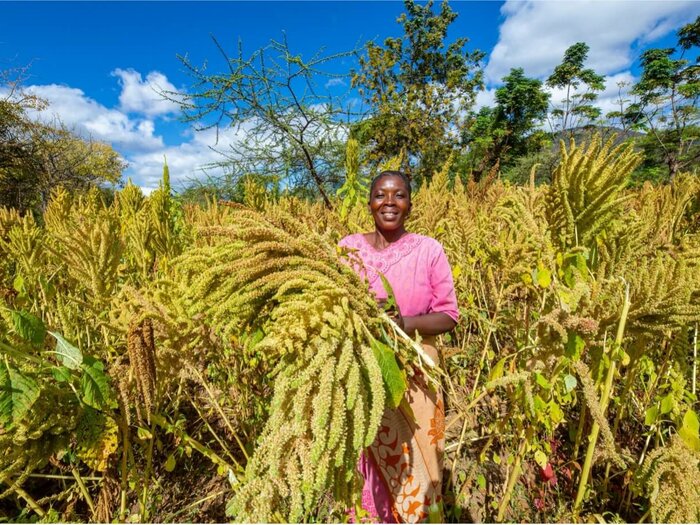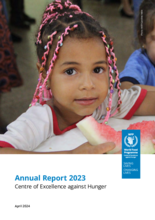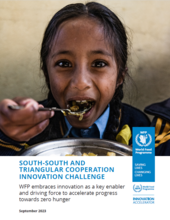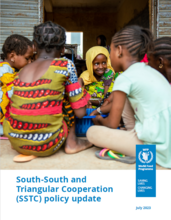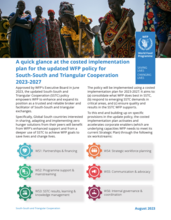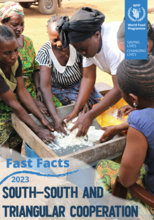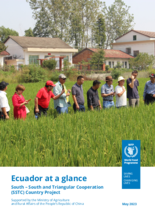Over the last decade and a half, the bulk of global economic growth has occurred in developing and middle-income countries. Governance standards and practices are maturing: many nations have been developing and testing their own solutions as they chart a path towards zero hunger. At the same time, the universality of the Sustainable Development Goals (SDGs), and of Goal 2 in particular, means hunger and malnutrition must be ended for all people in all country contexts – something no development actor, government or other entity can achieve in isolation. This is also why Goal 17, the last of the SDGs, commits stakeholders to realizing all partnerships necessary to achieve the other 16 goals.
Driven by rising demand among countries, WFP has stepped up to support governments through South-South and triangular cooperation (SSTC). This involves the direct exchange of knowledge, experiences, skills, resources and technical know-how among developing countries, often assisted by a donor or multilateral organization such as WFP. This “triangular” facilitation may take the form of funding, training, management, technological systems or other types of support.
Our engagement process is as much a pragmatic necessity as a reflection of global trends. As the 2022 Report of the UN Secretary General on South-South Cooperation states, over the past decades, countries of the global South have emerged as leading voices in global governance, champions of new platforms and institutions, and agents of development action for the realization of the 2030 Agenda.
The coronavirus pandemic, as well as the unfolding global food crisis, have highlighted that South-South and triangular cooperationcan also be a vehicle for closer partnership. This can turn the transfer of knowledge, technology and policy into mutually beneficial learning experiences for all participating countries.
In view of furthering engagement with the field, the WFP South-South and triangular cooperation unit helps WFP country offices and regional bureaux to find the right partners for their host governments, in order to tap into the wealth of expertise and innovations from the Global South in a wide range of areas. These include:
WFP, under its Strategic Plan 2022-2025, will increase engagement as a SSTC broker across three main levels: driving change at the policy level; expanding the technical skills and capacities of national experts; and bringing local innovation and experimentation to scale.
Harnessing WFP’s wide network at field level with over 80 countries, and in some of the world’s most difficult places, WFP has brokered over 30 SSTC pilot projects to date, driven by the demands of our host governments. These have generated benefits for the most vulnerable people at risk of, and suffering from, hunger and malnutrition in 28 countries across the world.
The 2015 SSTC policy guides WFP’s programme of work and strategic vision. A policy update in June 2023 will focus on further capacity strengthening and partnership-building across countries of the Global South.
You can find more information on WFP’s initiatives here.
You can contact the WFP SSTC Unit here.

